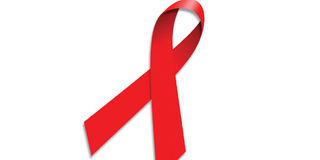WHO roots for self-testing as it marks World Aids Day

What you need to know:
- The WHO statement says if well utilised HIV/Aids self-testing can open the door for people to know their HIV status and find out how to get treatment and access prevention services.
- “HIV/Aids self-testing means people can use oral fluid or blood- finger-pricks to discover their status in a private and convenient setting. Results are ready within 20 minutes or less,” Dr Margaret Chan, WHO director-general was quoted by the statement as saying.
Geneva. The World Health Organisation (WHO) has said it encourages self-testing to improve access to and uptake of HIV/Aids diagnosis.
The WHO statement says if well utilised HIV/Aids self-testing can open the door for people to know their HIV status and find out how to get treatment and access prevention services.
“HIV/Aids self-testing means people can use oral fluid or blood- finger-pricks to discover their status in a private and convenient setting. Results are ready within 20 minutes or less,” Dr Margaret Chan, WHO director-general was quoted by the statement as saying.
After self-testing people with positive results are advised to seek confirmatory tests at health clinics. WHO recommends they receive information and links to counselling as well as rapid referral to prevention, treatment and care services.
Between 2005 and 2015 the proportion of people with HIV/Aids learning of their status increased from 12 per cent to 60 per cent globally. This increase in HIV/Aids testing uptake worldwide has led to more than 80 per cent of all people diagnosed with HIV/Aids receiving antiretroviral therapy (ART).
According to a new WHO progress report the lack of an HIV/Aids diagnosis is a major obstacle to implementing WHO recommendation that everyone with HIV/Aids should be offered ART.
The report reveals that more than 18 million people with HIV worldwide are currently taking ART, and a similar number is still unable to access treatment, the majority of which are unaware of their HIV/Aids positive status. Today, 40 per cent of all people with HIV/Aids (over 14 million) remain unaware of their status. Many of these are people at higher risk of HIV/Aids infection, who often find it difficult to access existing testing services. HIV/Aids testing coverage remains low among various population groups.
Men account for only 30 per cent of people who have tested for HIV/Aids. As a result, men with HIV/Aids are less likely to be diagnosed and put on antiretroviral treatment and are more likely to die of HIV/Aids-related causes than women. ”By offering HIV/Aids self-testing, we can empower people to find out their own HIV/Aids status and also to notify their partners and encourage them to get tested as well,” said Dr Gottfried Hirnschall, director of WHO’s Department of HIV/Aids.
“This should lead to more people knowing their status and being able to act upon it. Self-testing will be particularly relevant for those people, who may find it difficult to access testing in clinical settings and might prefer self-testing as their method of choice.” (Agencies)




